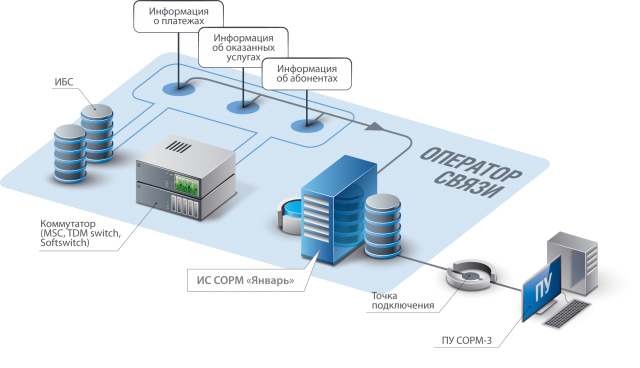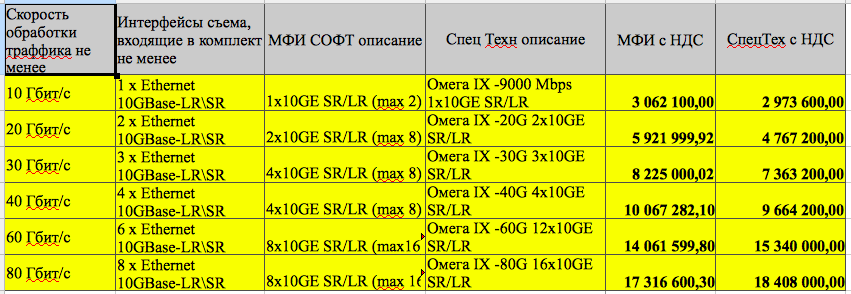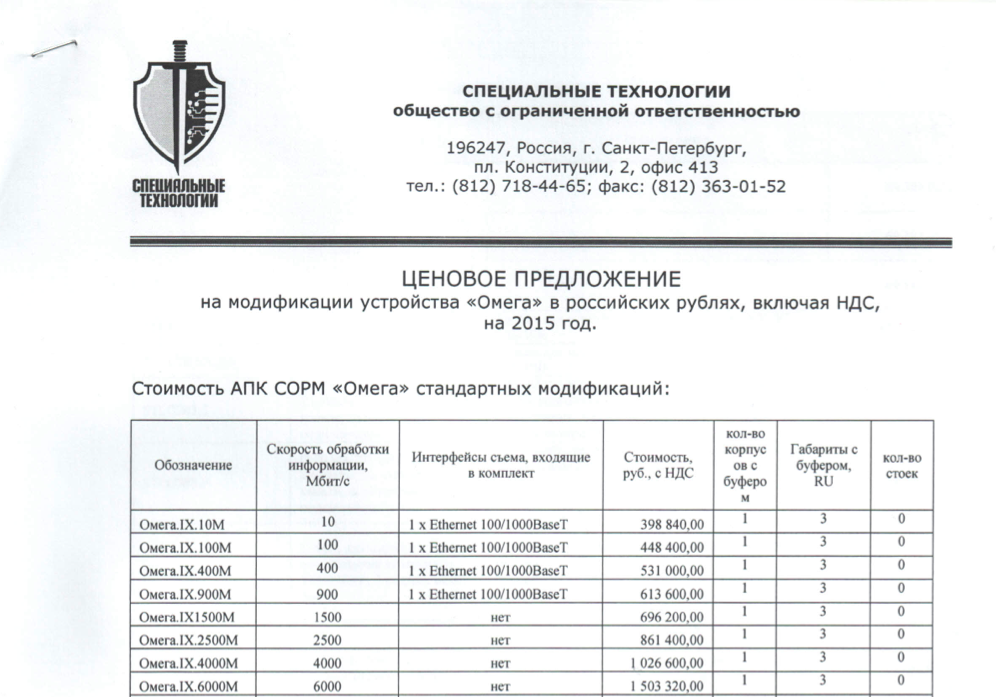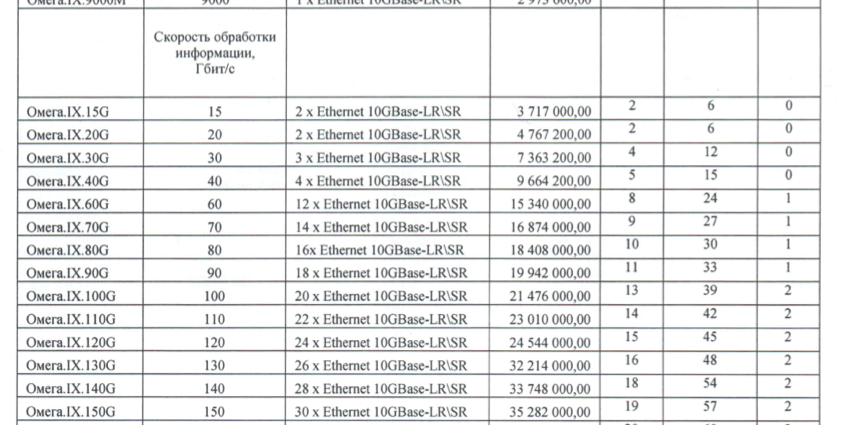FSB proposes to refine SORM for the execution of the “Spring package”
Who will make money tapping users?

In accordance with the package of amendments Yarovaya-Ozerova, from July 1, 2018, Russian telecom operators and Internet providers will be obliged to keep all user traffic and store metadata for up to six months (the exact date will be called by the government).
There are still two years left until the entry of the new rules, but organizations have already begun to divide the multi-billion dollar equipment market. On the instructions of the president, the equipment should be as domestic as possible. For the supply of such equipment requires a special license. The register of licenses for the implementation of “development, production, sale and acquisition activities for the purpose of selling special technical equipment intended for secretly obtaining information” is kept by the FSB, but the list of licensees was not obtained .
')
Now, each operator purchases equipment for SORM (a system of operational search activities) from the “right” company, which he is called in the regional department of the FSB. Any Internet provider is obliged to purchase equipment within three months after receiving a license, otherwise they will not sign papers for the commissioning of the communication center.
Investigations made it possible to identify several companies that supply equipment for SORM. Based on the analysis of the market, now these firms receive incomes in the billions of rubles, and after the “Spring package” comes into force, their incomes will grow many times. According to unofficial data, the equipment for SORM is sold by two major players (total revenues of 5-6 billion rubles per year):
- LLC Special Technologies (renamed to Orion LLC, the liquidation process is now launched)
- MFI Soft LLC
And also three smaller companies (total revenue is about 1 billion rubles per year):
- "Reanet"
- "Norse-Trans"
- TechArgos
The Internet Protection Society has previously published a comparative table of prices for SORM equipment from these two companies. Prices are pretty close.



After purchasing the equipment, the provider must also conclude an agreement for the maintenance of the equipment. Already, a small provider has to pay approximately 20–30% of annual revenue to SORM equipment, but this is only the beginning.
According to the existing SORM rules, the operator is obliged to keep the traffic of subscribers for 12 hours, and according to the new rules - up to 6 months, that is, 360 times more. Accordingly, it will be necessary to upgrade the infrastructure for data storage. Even according to rough estimates, the market for SORM equipment will grow tenfold.
As the newspaper Vedomosti has learned , the FSB proposes to use the SORM equipment already installed in the networks of telecom operators for the execution of the norms of the anti-terrorism legislation of Spring.
This equipment already provides the ability to store recordings for 12 hours (the so-called SORM ring buffer). The FSB proposes to expand the memory of the buffer so that the system keeps the traffic of all users not for 12 hours, but for six months.
Obviously, the cost of purchasing additional equipment will fall on the shoulders of operators. So far, it is difficult for operators to estimate the cost of expanding the SORM ring buffer. Earlier, the heads of MTS, MegaFon, VimpelCom and Tele2 estimated the total costs of Russian operators for the purchase, implementation and maintenance of traffic storage systems at 2.2 trillion rubles.
If the data is actually stored on the equipment for SORM, then the above-mentioned market players will multiply their incomes. But it will not be easy for them to keep the “feeder” only for themselves. Larger players have already begun to look closely at this promising market: “There is an order [of the president] to streamline the investment, the project selection process so that these development institutions [Skolkovo, Rosnano, RVC, FRII and Rosinfokominvest] invest in that should be the state. He now basically needs - this is import substitution, the implementation of the “Spring Law” [the fight against terrorism]. We need to develop hardware and software, ” said Ilya Massuh, head of the working subgroup under the presidential administration of Internet + Sovereignty, at a working meeting in the presidential administration on digital sovereignty. He explained that part of the investments of the Skolkovo, Rosnano, Russian Venture Company (RVC) funds, the Internet Initiatives Development Fund (IIDF) and Rosinfokominvest can be reoriented towards import-substituting projects, including the development of software and equipment for meeting the requirements anti-terrorist package "Spring".
Source: https://habr.com/ru/post/396619/
All Articles